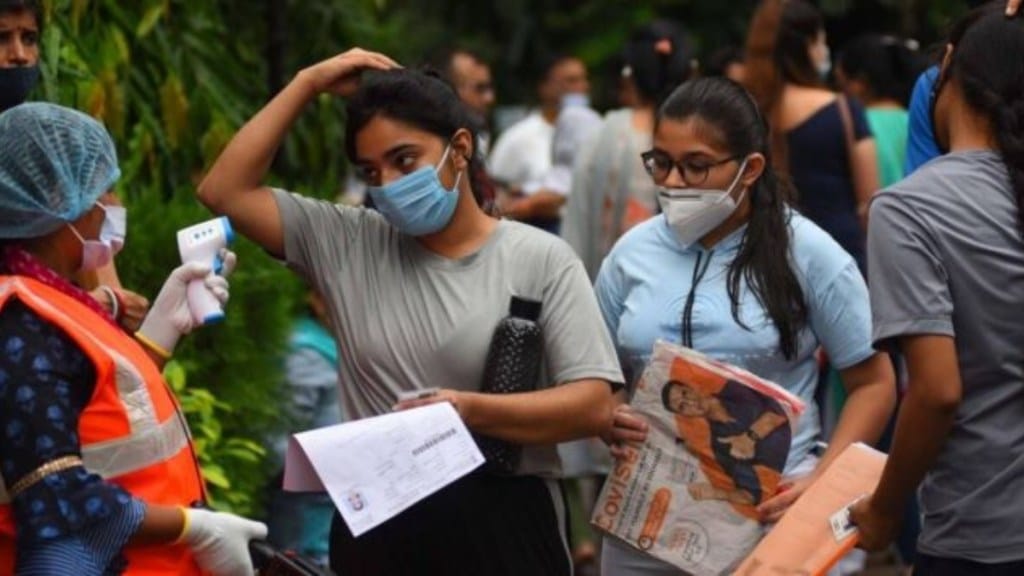The National Testing Agency, which conducts the National Eligibility cum Entrance Test (NEET) for under-graduate medical courses, has told the Supreme Court it will now hold a a re-test for those who got grace marks. Anvitii Rai explains what led to this & what’s wrong with our competitive exams
l What went wrong with NEET 2024?
THE RESULTS FOR NEET 2024 were declared on June 4, 2024, the same day as the Lok Sabha polls results. A record 67 students obtained a perfect score of 720; since 2020, never have more than three students got full marks in this test, which saw 23,33,297 candidates sit for it this year. Students alleged there were several discrepancies and reports of the poor state of some testing centres also came to light. Another incongruency in the scores is that a couple of students got 718 and 719 marks, which is not possible, given that NEET grants four marks for a correct answer and deducts one mark for an incorrect one. Reports of paper leaks from Patna also surfaced.
In its defence, the NTA claimed grace marks were given to 1,563 students for time loss as per the Supreme Court’s normalisation mandate of 2018. As one question was answered incorrectly due to an error in a previous edition of the prescribed textbook, students who chose that answer were given full marks. On Thursday, education minister Dharmendra Pradhan dismissed allegations of paper leaks. “There is no evidence of a paper leak in NEET-UG. The allegations of corruption in NTA are unfounded, it is a very credible body,” he said.
l What has been the Supreme Court’s response?
AGGRIEVED STUDENTS HAD approached the courts. While a vacation bench of the apex court refused to stay the counselling process, it demanded answers from the Centre and the NTA. “Sanctity (of the exam) has been affected, so we need answers,” a two- judge bench said. A special committee was appointed by NTA to look into the controversy. On Thursday, basing its order on the committee’s recommendations, the Supreme Court said the score-cards of the affected 1,563 candidates would stand cancelled and they could either accept their actual scores without the grace marks or sit for a re-test on June 23. Petitions filed in the courts before the declaration of the results, will be heard by the Chief Justice of India on July 8.
l Has the NTA faced such allegations for other exams also?
THIS IS NOT the first time the NTA has found itself in the midst of allegations about the way it conducts competitive exams. Last month itself, it came under fire due to the last-minute postponing of the Common University Entrance Test (CUET), owing to “unavailability of invigilators”. Last year also, multiple mistakes in the answer keys of the CUET exam and the normalisation method had raised doubts about the agency’s ability to conduct a fair and trustworthy examination. In February this year, students who had appeared for the Joint Entrance Exam (JEE) for engineering exams alleged there were discrepancies in the percentile calculation for similar absolute scores obtained in multiple exam shifts.
l How are such tests conducted in other countries?
CHINA’S UNIVERSITY ADMISSION test, known as the Gaokao, saw 13 million students attempt it this year. As it can only be taken once, it is paramount that it be conducted fairly. According to the South China Morning Post, the teachers who draft these papers are diligently selected and trained in secrecy-keeping, before being transported to secure locations in Beijing, where they stay till the exam has been held, with no access to the internet and limited contact with family from designated landlines. The papers are transported to test centres under armed guard. According to the Global Times, as the execution of the exam depends on the provincial municipalities, several provinces boast of many hi-tech measures that they adopt for conducting the exam smoothly.
Similar measures are also taken by South Korea for its university entrance exam, known locally as the Suneung.
l What can be the way forward?
ACCORDING TO KALPESH Banker, founder and CEO, EduShine, a management consulting firm focused on higher education, while competitive examinations cannot be scrapped in a country with such a large population, testing processes and grievance redressal need to be sharply standardised. According to him, “grace marks” should have a well-defined process to be awarded. Talking to FE, he stated, “We need to continuously improve the exam so that it gains more trust over a period of time.” He also pointed out that no one has ever been penalised for such blunders, which must change, adding that “there needs to be a penalisation action right now to ensure significant improvement in the future.”
In a video posted on YouTube, Careers360 founder and chairman Maheshwar Peri demanded that “the NTA must submit itself to a technical and forensic audit” and suggested that this be done after every major exam to ensure its integrity.


